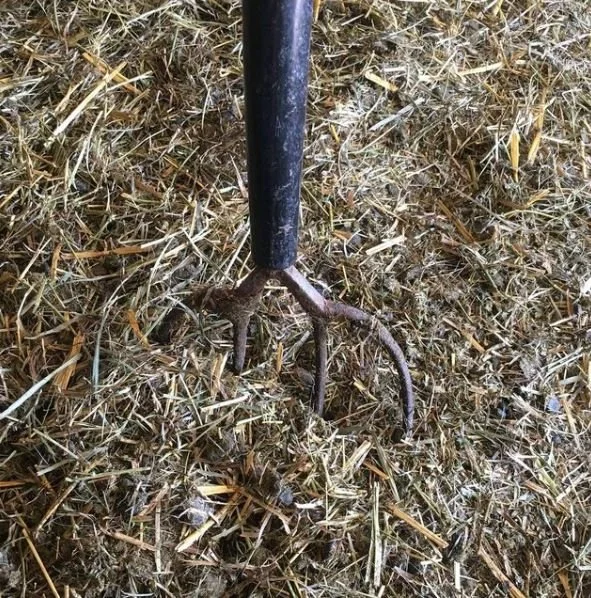Spring Cleaning
I was chatting with a group of girlfriends last week and one had decided she wanted some help with her annual spring cleaning. Each chimed in with their suggestions and references except me. My silence did not go unnoticed.
“Out of all of us here, I would think you would be the one who would need a housekeeper,” remarked the original poser of the question. For the remainder of our visit I listed 101 reasons why my spring cleaning is vastly different than theirs.
For farmers, our spring cleaning starts in the barns, in our greenhouses, and in our fields—the house can wait. While my floors in the house are begging to be steam cleaned the floors in the barn take priority.
Livestock farmers are beginning to clean out their bedding packs from where the animals have spent the winter. Cold weather slows the ammonization from the breakdown of manure, urine, and bedding materials such as straw or wood shavings. As soon as temperatures reach the 70’s, the process speeds up. When it reaches into the 80’s, a dirty barn can make your eyes water, especially with poultry.
Every farmer handles their waste materials differently. Some clean out regularly during the winter banking the waste until spring or spreading on the fields as soon as it comes out of the barn. Others compost their waste in windrows until it has broken down into amendment compost which has an earth scent unlike the starting version. The breakdown process gives off lots of heat, as high as 170 degrees Fahrenheit. These temperatures help to reduce pathogens, parasites, and weed seeds that may be present.
Spring is also the time to clean up the detritus that collects about the place during winter. Baling twine, large bale net wrapping, feed sacks, baleage bags, sileage plastic collect here and there. Farmers all think the same way—they’ll use it for something else or they might need that for something later. After all, we know the world is held together with baling twine.
Livestock farmers aren’t the only ones filling their dumpsters right now. The produce people have been hard at it pulling up plastic mulch, drip tape, irrigation lines, floating row covers, and seedling flats. Poultry producers are dusting out brooders, replacing heat lamp bulbs and tossing those cracked waterers that leak in preparation for chicks.
Spring cleaning is far more than tidying up. It’s also the time for repairs—gates that don’t open properly, water hydrants that leak, fixing fencing, irrigation lines, outbuildings, fans, motors, equipment—you can see why my friends thought I’d want a housekeeper to do the cleaning while I tackle the never-ending list of farmwork. But the truth is I wouldn’t wish my housecleaning on my worst enemy. There’s tromping through the house with my boots for emergencies when removing them might result in disaster. Each year a few bottle babies end up in the house along with baby chicks that need to be kept warm and safe. On days that start out with frost on the ground and end in the 80’s there’s an explosion of clothing all with varying degrees of dirt. Occasionally I wonder if I’d spread seeds on my kitchen floor, would they grow?
There’s also spring cleaning of our market vehicles. That’s when all the hats, gloves, scarves, coats, insulated coveralls, handwarmers, and neck gaiters get pulled out from behind and under the seats to be stowed away until cold temperatures return. My pile of winter wear is still on the couch, but the pitchfork beckons that there’s work to be done in the barn before I dare take on the house.

